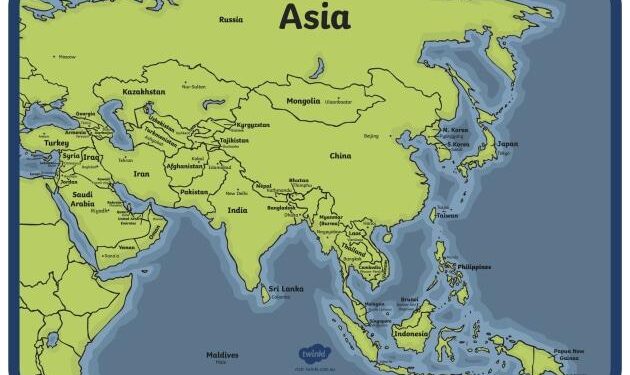Asia’s Climate Emergency: Warming Twice as Fast as the Global Average
The World Meteorological Organization (WMO) has recently revealed a concerning trend: Asia is heating up at nearly double the pace of the worldwide average. This rapid temperature rise intensifies the continent’s exposure to climate-related hazards, including more frequent and severe storms, flooding, and rising sea levels. The consequences extend beyond environmental degradation, threatening economic stability and public health across diverse Asian regions. This article examines the factors driving this accelerated warming in Asia, its wide-ranging impacts on ecosystems and societies, and outlines strategic measures necessary to confront this escalating crisis.
Understanding Asia’s Rapid Temperature Increase
Asia’s swift warming is fueled by a combination of human activities such as industrial expansion, urban growth, and widespread deforestation. These developments have amplified greenhouse gas emissions while disrupting natural carbon sinks. The region’s dense populations further exacerbate vulnerability to climate extremes like heatwaves that shatter records annually—2023 saw unprecedented temperatures in parts of South Asia reaching above 50°C (122°F). Additionally, erratic monsoon patterns have led to both devastating floods and prolonged droughts.
The repercussions are multifaceted:
- Energy Transition: Moving from coal-dependent power generation toward renewable sources like solar and wind energy is critical for curbing emissions.
- Sustainable Water Use: Implementing advanced water management techniques can help mitigate drought risks affecting millions reliant on agriculture.
- Climate-Resilient Infrastructure: Building structures designed to endure typhoons or flash floods will protect communities from increasing natural disasters.
| Area Affected | Description |
|---|---|
| Public Health | A surge in heat-related illnesses alongside respiratory problems linked to pollution spikes |
| Agriculture | Crops failing due to unpredictable rainfall cycles impacting food availability |
| Economic Stability | Deterioration of infrastructure leading to costly repairs after extreme weather events |
Ecosystem Disruptions & Economic Consequences Across Asia
The ecological toll from rising temperatures is evident throughout Asian habitats. Coral reefs in Southeast Asia are experiencing extensive bleaching episodes caused by warmer seas combined with ocean acidification—jeopardizing marine biodiversity vital for fisheries that support millions of livelihoods. Forest ecosystems face altered precipitation patterns that increase vulnerability to pests such as bark beetles; these infestations threaten timber industries while undermining carbon sequestration efforts crucial for climate mitigation.
Agricultural sectors are particularly hard-hit by climatic instability. For example, rice paddies in countries like Vietnam suffer yield reductions due to saltwater intrusion driven by sea-level rise coupled with irregular monsoons disrupting planting seasons. Similarly, tea plantations across India’s northeastern states report declining productivity linked directly to shifting temperature norms.[1]
| Sector Impacted | Specific Effect |
|---|---|
| Agriculture | Lower harvests causing food insecurity concerns |














